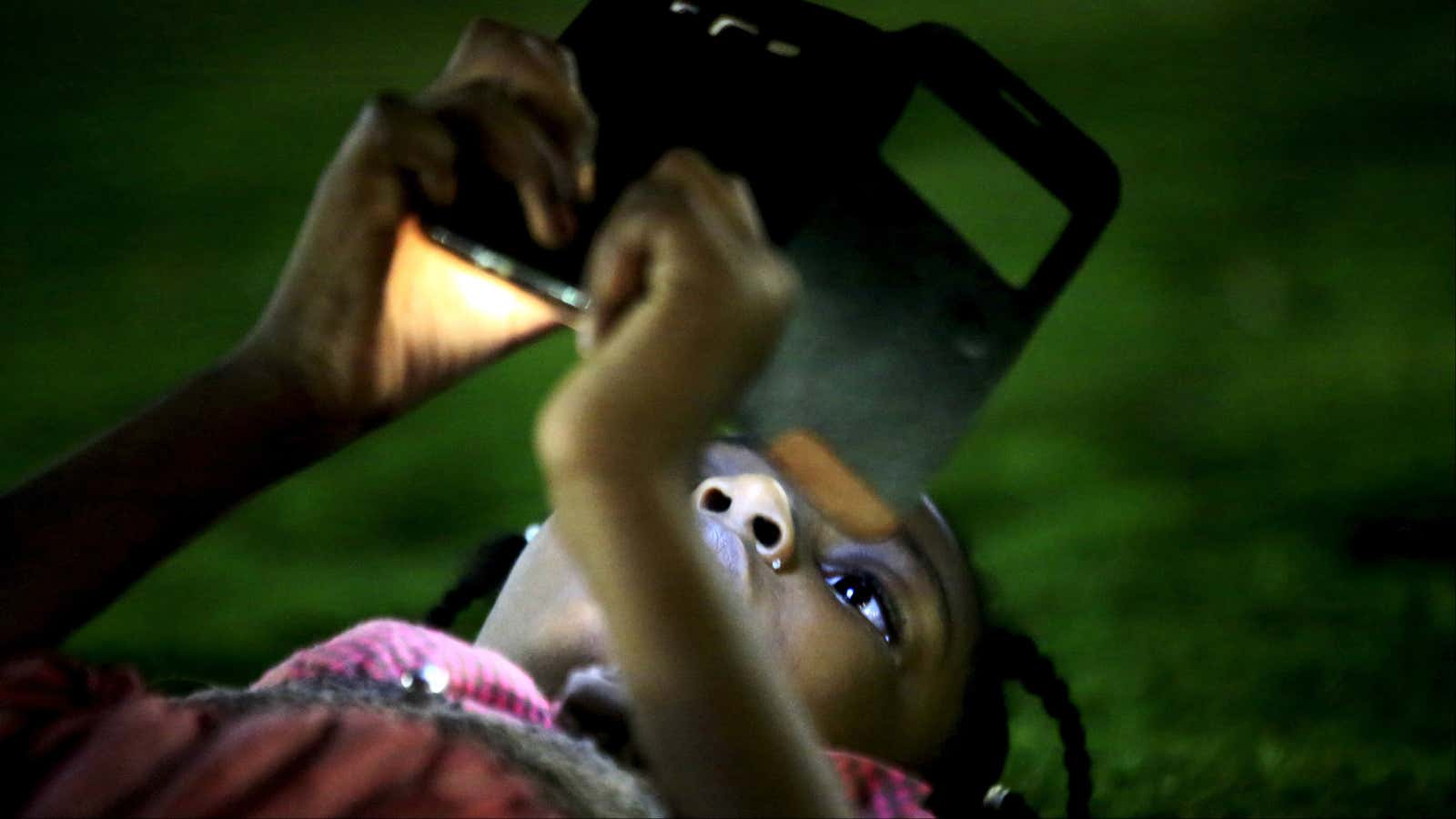Africa is a mobile-first continent. With almost 70% penetration and the innovations around mobile money, the continent is redefining what one can do with a cell phone. But increasingly there is an emerging perception that the mobile market is becoming saturated. Yet, one of the fastest-growing mobile phone companies on the continent thinks there are millions of Africans out there that still remain left out .
“We think there is a lot of growth in the core voice area still to see,” says Cynthia Gordon, CEO of the Africa division of Millicom, the Swedish-based telecom and media company.

Millicom, which also owns digital businesses and payTV outlets in Latin America and here in Africa, operates in six markets on the continent serving about 30 million customers with its Tigo brand. And while it may be the case benchmark markets such as South Africa and Nigeria may be showing signs of saturation, this is not the case in other parts of Africa.
“In markets like [Tanzania], mobile penetration is something like 65%,” Gordon says. “But when you go to a place like Rwanda penetration is 40%. So we think there is a lot more growth opportunity in places like Rwanda, DRC, Chad and Tanzania just to get more people using mobile more.”
Analysts agree. While some companies are increasingly trying to package products that will cater to users interested in the popular so-called over-the-top (OTT) internet products such as WhatsApp or Facebook, there is still a sizable number of people out there that remain unsubscribed.
“Those people need phones to make calls,” Taha Jiwaji, chief executive officer of Bongo Live, a Tanzania-based mobile and digital marketing company, said to Quartz. “There is still a lot of Tanzania uncovered.”
And Millicom has been making moves designed specifically to tap into that part of the market. It bought a controlling stake into Zantel, the leading mobile carrier in Zanzibar, adding a potential market of one million people into its purview. And last October, the company acquired 24% of Helios Towers Africa (HTA), a move that allows it to become one of the leading telecom tower owners on the continent, better positioning itself in its rural expansion.
But the attempt to grow their mobile subscribers has not limited the company’s efforts to tap into data as well. With the rise of cheaper smartphones, analysts expect mobile internet use to grow 20-fold within the next five years.
To grow its customer base in this market, Tigo has launched 4G services in Tanzania, Rwanda and Chad, one of the first mobile operators to do so in those markets.
The challenge for the company now is whether it can turn ownership of a fast internet infrastructure into more data users. Despite having 60% of its users possessing data-enabled devices, less than 50% use these devices to access data services, according to Gordon. Overall, only 20% of the company’s customer base across the continent use data.
The company is offering content such as Facebook in Kiswahili to its Tanzania subscribers and Tigo Music, a partnership with Deezer, the music streaming service, to provide, in prepaid data plans, access to music, including music by local artists, as a way to bring in users. ”We’ve got people with the handset. We’ve got the network. We just need to close the gap,” Gordon says.




